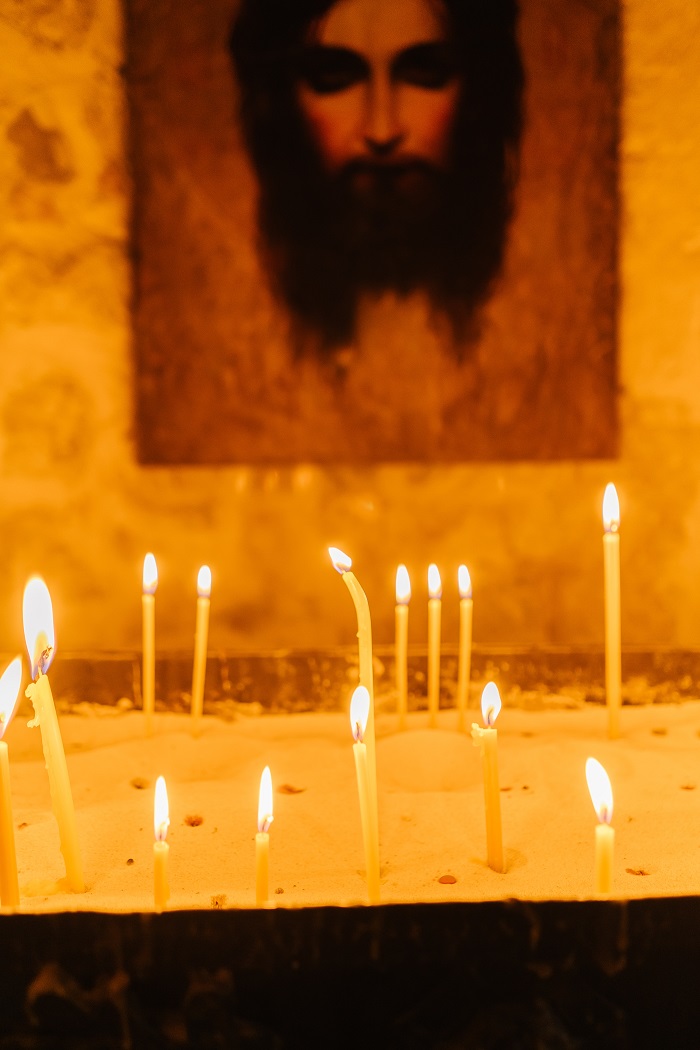‘How not to Lose Your Christian Spirituality’ by Dr John G. Panagiotou

Pic – https://www.pexels.com/
John G. Panagiotou – Carolinacompass – 3/6/22
In the world today, especially within the confines of a seminary or any other Christian faith-based institution, believers are confronted with the not-so-subtle influence of the world. The church is being influenced by the culture instead of the church influencing the culture. You don’t have to look beyond the television, digital media, the pews or even the pulpits. On a recent trip to New England, I was reminded how far the descendants of the Puritans have strayed from a theocentric worldview. Whether in New England or of English Puritan descent or not, how far have we drifted from our sacred past and heritage? The Reformed theologian of the 20th century Reinhold Niehbur observed prophetically when he wrote that the institutional church today preaches a gospel that “a God without wrath brought men without sin into a Kingdom without judgment through ministrations of a Christ without a Cross.” Are we not living in a time that the famed 19th-century preacher Charles Spurgeon would not call a time when there is “a famine of the Word of God?”
Yet I live in a city that for the last 350 years has been deemed “the Holy City” of America — not so much because of its piety but because of its church buildings. Are we not called to something greater than that? Are we not called to experience a union with God instead of a romanticized sentimental acquaintance with an “aspect of religion”? Seminaries are not immune to this spiritual pandemic of indifference to the Gospel. In reality, we may be more susceptible. Where is our vaccine and what are our therapeutics? The truth is that they have been right before us all along, prepared, nurtured, and sustained by God’s providence. Though we may not have placed the necessary emphasis on them as we should — or we just have plainly neglected them — the questions don’t really matter at all. It is the solutions that really matter.
The solutions are fourfold as I see them.
First, if we understand the original meaning and expression of “catholic,” meaning the universal church as the apostolic church fathers understood it, then we would see that we are inseparably linked to one another. We are not just a federation of congregational communions where local churches are independently self-sufficient in form, function and purpose regardless of our respective jurisdictional hierarchies. We are literally spiritually networked. We are our brothers’ keepers in a very real sense that supersedes merely shallow platitudes. Alexander Solzhenitsyn reflected on this when he spoke in his address at Harvard University saying, “Hastiness and superficiality are the psychic disease of the 20th century.”
Secondly, we need to revere and study the Holy Scriptures as the prime deposit (parakatathoikoi) of the faith Tradition (paradosis), as the Apostle Paul instructed his young protégé Timothy. St. Athanasius the Great and St. John Chrysostom echoed this in the fourth century during the era when the canon of the New Testament was proclaimed. Unless we know the playbook, we cannot compete with any success in the arena of spiritual warfare. Third, we need to return to the ascetical practices of prayer and fasting. As our Lord taught us, only prayer and fasting can drive out the enemies that seek to destroy us. We forget that a feast in the ancient Christian world was only preceded by a fast. Abraham Lincoln knew this when he called for a day of prayer and fasting during the darkest hours of the War Between the States in hopes of healing and uniting the deeply divided country. Finally, we need to reaffirm our commitment to worship God in the way that is consonant with the early original church. As Alexander Schmemann wrote, we were made to be eucharistic doxalogical beings. This is the church Justin Martyr knew. This is the church Irenaeus of Lyons knew. This is the church we need to know. We especially need to be mindful of this in the seminary setting. The seminary chapel needs to be used regularly. It needs to be the nerve center and heart of the seminary. It is our identity. We are not just an intellectual hub or thinktank or professional vocational school. We are called to be a living, vibrant spiritual nexus community that worships God and participates in the renewing of our minds as the Apostle teaches.
Without life as found in the Holy Spirit, we are not being authentically engaged in the mystery that is known as Christian living. To truly live is to be in Christ. To be alive is to be in Christ. In a world that is seeking to find its way, we are called to offer an existential and supernatural answer to these questions from both a metaphorical and a literal perspective, all in the healing salve of Christ’s love. There people can find healing, wholeness and hope.
Dr. John G. Panagiotou is professor of church history and New Testament Greek at Cummins Memorial Theological Seminary; professor of ethics, theology and philosophy at Wheeling University; and adjunct professor of early church history and Biblical Greek at Erskine Theological Seminary. He is the author of the book The Path to Oikonomia with Jesus Christ as Our Lighthouse (OCP Publications, 2020).
Republished with permission from the author.
